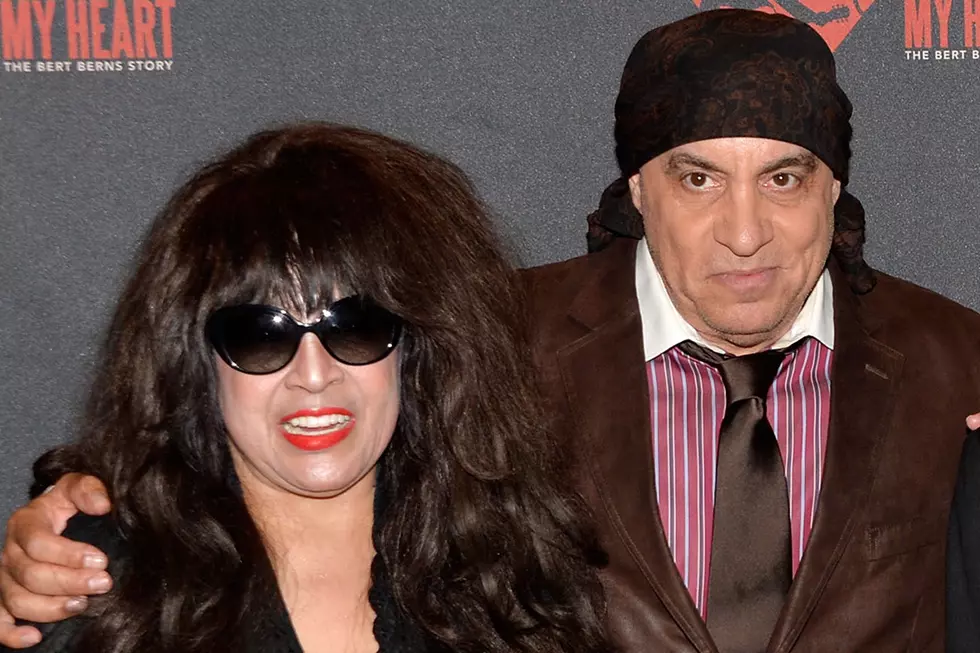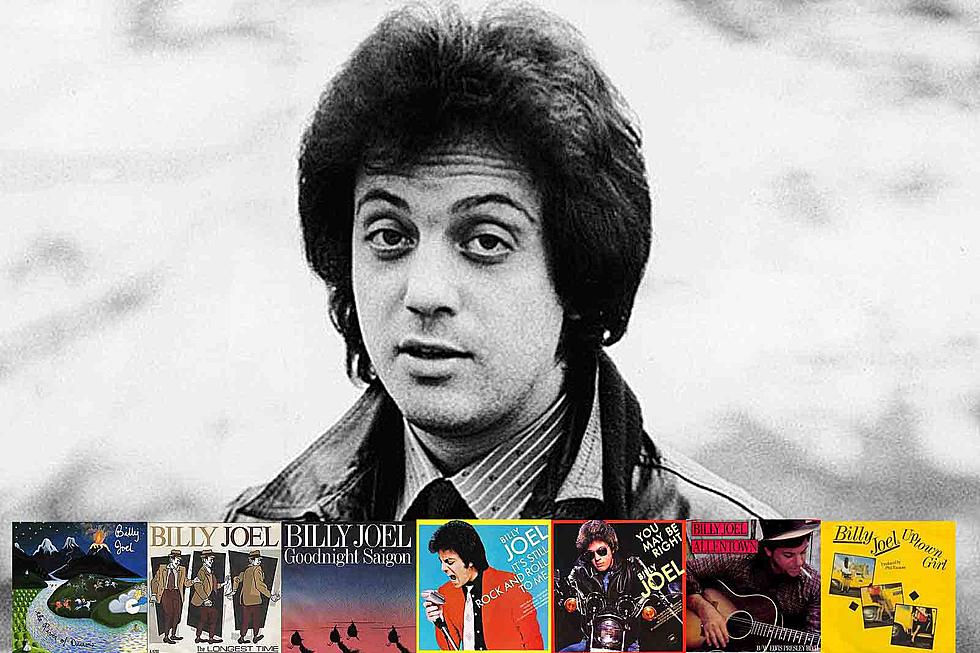
How Ronnie Spector Saved the E Street Band From Breaking Up
When Ronnie Spector agreed to record a cover version with the E Street Band, she was making sure the group didn’t break up.
The studio session took place in 1977 when Bruce Springsteen was engaged in a battle with his former manager, and as a result, was legally prevented from tracking any new music. That meant the members of his band were also unable to work, and the Boss was running low on cash to pay them.
In his recent memoir Unrequited Infatuations (via Rolling Stone), E Street Band guitarist Stevie Van Zandt recalled that three of his bandmates had voted to split since they had offers of session work. He persuaded them to hold off on their decision, and that’s when label executive Steve Popovich suggested working with Spector, who died on Jan. 12 at 78. She only recently started singing again after years of retirement, including an appearance on the debut album by Southside Johnny and the Asbury Jukes in 1976, which was the first time Van Zandt worked with her.
“We all fell in love with that voice,” he said. “That combination of innocence and a little bit of sensuality and sexuality.” But when she began recording Billy Joel’s “Say Goodbye to Hollywood” – a song she had inspired – the band noticed something was wrong. “At a certain point, we realized that she had changed the vibrato of her voice,” the guitarist recalled. “She changed her style a bit in the off years and so we just kind of reminded her, ‘There’s this thing you do, this really cool sexy vibrato thing.’ And then we got the take.”
The single wasn’t the success they hoped it would be, but it did bring the band members some much-needed paychecks – including Springsteen, who participated only as an “advisor.” “It should have been a hit, that thing,” Van Zandt said. “We had her back onstage, and she stayed there for the next 45 years. Professionally, what an honor to produce her. And it was a very, very critical moment.”
You can listen to the song below.
Top 100 '70s Rock Albums
More From WPDH-WPDA










